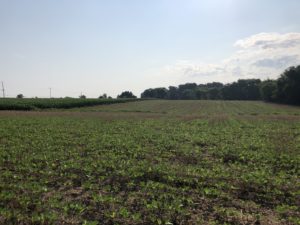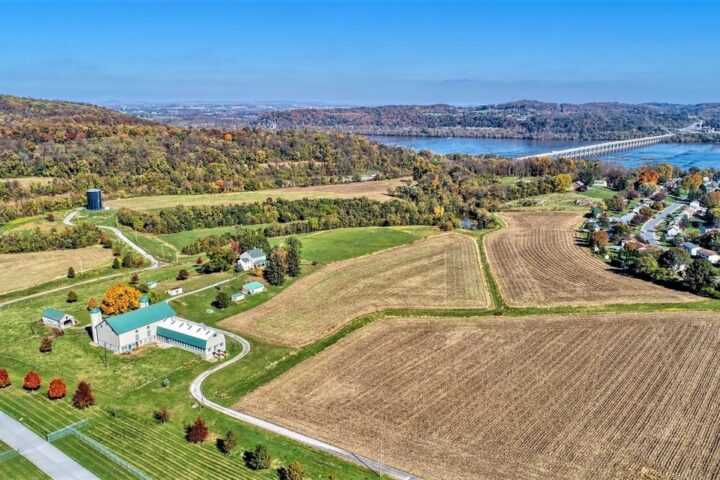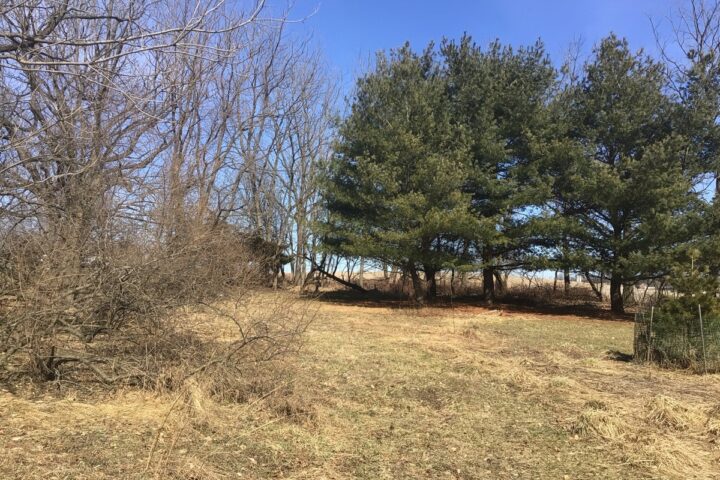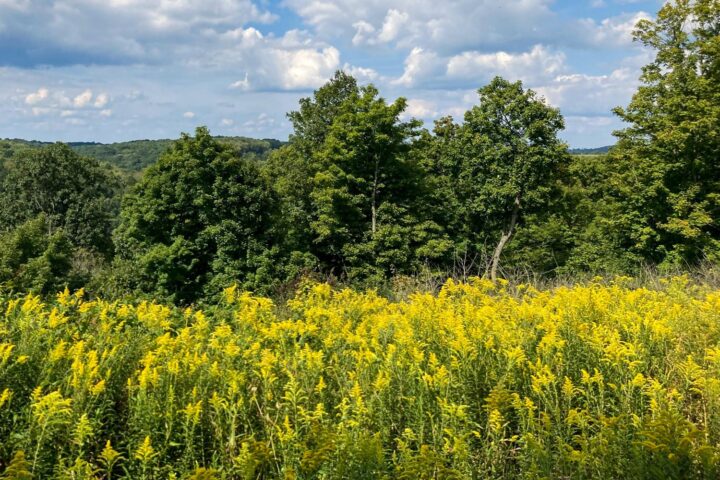
Photo credit: Kate Raman
Natural Lands announced the protection of nearly 42 acres of land in northern New Garden Township in Chester County. The voluntary land protection agreement will permanently prevent development of the property, a farm that has been in the landowner’s family for nearly a century. The conservation easement also includes a provision that will offer access to a walking trail for elementary school children and for locals hiking to and from Kennett Square.
The 43-acre Sproat Farm straddles Route 1 in New Garden Township, offering pastural views of farm fields and woodlands. The farm is now permanently protected under a conservation easement held by non-profit Natural Lands. A conservation easement is a voluntary but legally binding agreement between a landowner and a qualified conservation organization that permanently limits a property’s use. The agreement applies to all present and future owners of the land.
The farm has been in the Sproat family for nearly 100 years. Mary Sproat, who served as the first secretary of the New Garden Township Open Space Review Board, leases crop fields to the adjacent New Bolton Center.
“This land has been in agriculture since before my family bought it in the 1930s. The ‘highest and best use’ of good agricultural land is not for housing developments but for agriculture. I want to see it used for agriculture far into the future,” said Mary Sproat. “The woods are used by birds and animals as their homes. They add so much to our lives, and they deserve to be able to continue to live here.”
The wooded portion of the property includes a tributary to West Branch Red Clay Creek. These woodlands help filter out contaminants as rainwater drains into the stream. The tree roots help water soak into the ground, recharging groundwater supplies. They also reduce erosion and slow stormwater to reduce flooding.
“Water is central to our work preserving open space and caring for nature across eastern Pennsylvania and southern New Jersey. This is true at our network of nature preserves and on more than 400 other permanently preserved properties like Sproat Farm,” said Oliver Bass, president of Natural Lands. “We know that every acre saved as open space means cleaner drinking water and additional natural flood prevention. If Mary Sproat hadn’t chosen conservation—and if New Garden Township, Chester County, and the Mars Foundation hadn’t supported that choice—this land would eventually be developed. Buildings and roads would have diminished the land’s ability to work on our behalf.”
Additionally, New Garden Township now holds a trail easement through the Sproat Farm. The future trail will help connect a nearby subdivision to Bancroft Elementary School and connect to the proposed township trail network as laid out in the township’s 2008 Greenways & Trails Plan.
New Garden Township financially supported this project.
“The township would like to thank Mary Sproat for easing her property so the children being educated at Bancroft Elementary can have beautiful scenery, fresh air, and a pleasant atmosphere as they work to develop their minds,” said David Unger, New Garden Township supervisor. “This land will help to foster a life-long love of the outdoors and nature in our current and future students, and we appreciate her commitment to that future.”
Additional funding came from Chester County’s Preservation Partnership Program.
“Preservation of Sproat Farm is a great example of how investment in maintaining Chester County’s green spaces benefits everyone, and we thank Mary Sproat for choosing permanent preservation,” noted Chester County Commissioners Marian Moskowitz, Josh Maxwell, and Michelle Kichline.
They added, “We were pleased to be a funding partner in this project as it ‘checks the boxes’ in meeting our Landscapes3 goals of land preservation, protection of our natural resources, connection through trail development, and prosperity to through sustaining our agricultural industry. It also ensures more than 17 acres of forest in Chester County is preserved, which supports reduction of greenhouse gas emissions in the county.”
Additional support came from the Virginia Cretella Mars Foundation.




